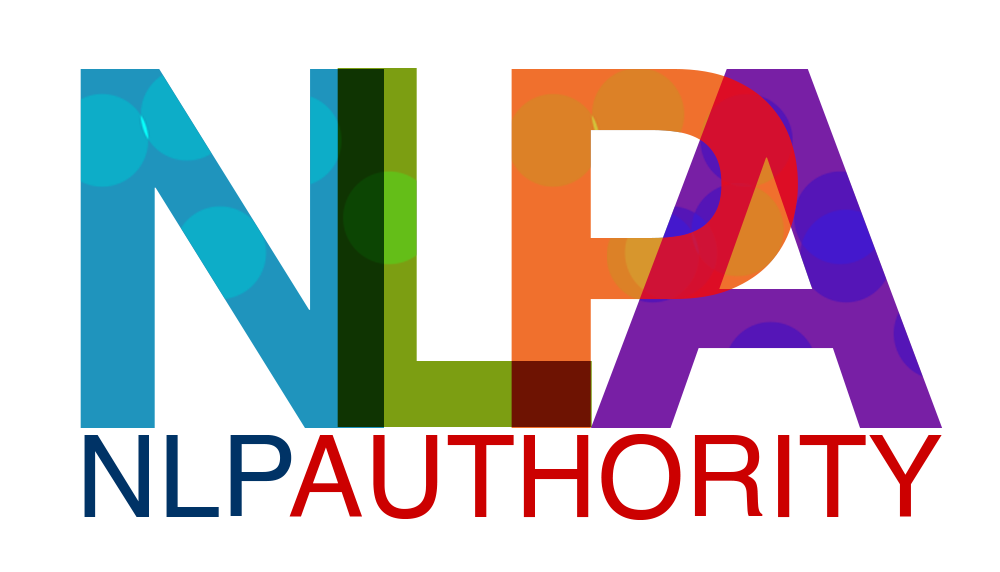Honest NLP Training: Navigating the Maze of Promises and Potential

In today’s world of self-improvement, Neuro-Linguistic Programming (NLP) has emerged as a powerful tool for personal and professional development. However, the field of NLP training can be a complex landscape, filled with a spectrum of approaches and promises. For those seeking genuine transformation, the question remains: how do you find honest NLP training that delivers real results?
This article dives deep into the world of honest NLP training, exploring key aspects to consider when embarking on your learning journey. We’ll address the following points:
- Understanding NLP: Separating Fact from Fiction
- The Hallmarks of Honest NLP Training
- The Importance of Trainer Credentials and Experience
- Setting Realistic Expectations: What Can NLP Do (and Not Do)?
- Avoiding NLP Training Pitfalls: Red Flags to Watch Out For
- Finding the Right Training Program: Aligning Goals with Learning
Understanding NLP: Separating Fact from Fiction
NLP is a methodology that explores the connections between our neurology (brain function), language (communication), and programming (behavioral patterns). While NLP holds immense potential, it’s essential to separate fact from fiction. Here are some common misconceptions:
- NLP is a Mind Management Methodology: NLP does not involve mind control. It focuses on empowering individuals to understand their own thought processes and make conscious choices.
- NLP is a Quick Fix: Genuine transformation takes time and effort. NLP provides tools and techniques that require practice and integration into daily life.
- NLP Guarantees Success: NLP is not a magic bullet. While it can provide valuable tools, success ultimately hinges on individual effort, dedication, and existing skillsets.
The Hallmarks of Honest NLP Training
Honest NLP training is grounded in transparency and ethical practices. Here are some key aspects to look for:
- Focus on Core NLP Principles: Reputable trainers emphasize core NLP principles like rapport building, meta-modeling, and representational systems. They avoid sensationalization of techniques.
- Emphasis on Practical Application: Training should not be solely theoretical. It should provide ample opportunities to practice NLP skills through exercises, role-playing, and case studies.
- Ethical Considerations: Honest trainers address ethical considerations associated with NLP. They emphasize responsible use of these techniques while respecting individual autonomy.
- Transparency on Fees and Certification: Pricing should be clear and upfront. Beware of programs promising unrealistic results or hidden costs. Certification should be through recognized NLP organizations.
The Importance of Trainer Credentials and Experience
Trainers play a crucial role in your NLP learning experience. Here’s why choosing experienced trainers matters:
- Depth of Knowledge: Experienced trainers possess a deep understanding of NLP principles and their practical applications.
- Effective Teaching Skills: They can translate complex concepts into clear, engaging learning experiences tailored to diverse student needs.
- Real-World Insights: Trainers with experience can share practical applications and case studies, grounding theory in reality.
- Ability to Cater to Individual Needs: Reputable trainers can adapt their teaching style and offer personalized feedback to maximize your learning.
Setting Realistic Expectations: What Can NLP Do (and Not Do)?
NLP offers various benefits, but it’s important to set realistic expectations. Here’s what NLP can do:
- Enhance Communication Skills: NLP helps you understand and influence communication patterns, leading to better relationships and collaboration.
- Increase Self-Awareness: By exploring your thought processes and triggers, NLP empowers you to make conscious choices and manage emotions effectively.
- Boost Confidence: Mastering NLP techniques fosters a sense of self-efficacy and confidence, allowing you to approach challenges with a positive mindset.
- Develop Effective Goal Setting Strategies: NLP provides frameworks for setting clear goals and implementing actionable plans to achieve them.
- Improve Stress Management Skills: NLP techniques like reframing and emotional anchoring can help you manage stress in challenging situations.
However, NLP cannot:
- Guarantee Instant Success: Success depends on individual effort, skillset, and application of NLP principles.
- Cure Mental Health Issues: NLP is not a substitute for professional therapy for psychological challenges.
- Make You a Mind Reader: NLP builds rapport and communication skills, but it doesn’t allow you to control the minds of others.
Avoiding NLP Training Pitfalls: Red Flags to Watch Out For
Not all NLP training programs are created equal. Here are some red flags to be aware of:
- Exaggerated Claims: Programs promising instant results, superhuman abilities, or mind control tactics should be avoided.
- Focus on Certification Over Learning: Programs emphasizing certification over the actual development of NLP skills can be misleading.
- Hidden Costs or Unclear Fees: Transparent pricing is essential. Beware of programs with hidden costs or unclear fee structures.
- Limited Practical Application Training:
- Programs that focus heavily on theory without providing opportunities to practice NLP skills through exercises and real-world scenarios can hinder your learning and ability to apply NLP effectively.
- Lack of Trainer Credentials or Experience: Research the trainer’s background and qualifications. Opt for trainers certified by recognized NLP organizations and possessing demonstrable experience in the field.
- Negative Reviews or Experiences: Look for online reviews and feedback from past participants. Consider negative experiences and weigh them against positive testimonials.
Finding the Right Training Program: Aligning Goals with Learning
With the vast array of NLP training programs available, finding the right fit can be overwhelming. Here’s how to align your goals with the learning experience:
- Identify Your Goals: What do you hope to achieve through NLP training? Improved communication, increased self-awareness, or career advancement? Identifying these goals will help you choose a program that addresses your specific needs.
- Consider Program Structure and Duration: Programs vary in length and intensity. Choose a program that aligns with your learning style and available time commitment. Weekend workshops may offer a taste of NLP, while in-depth programs provide greater depth.
- Research Trainers and Institutions: As mentioned earlier, trainer credentials and experience are crucial. Research the trainer’s background, teaching style, and certifications.
- Compare Learning Styles and Course Delivery: Do you learn best in interactive environments with role-playing exercises? Or do you prefer a more lecture-based approach? Choose a program that aligns with your preferred learning style.
- Seek Recommendations and Reviews: Talk to friends or colleagues who have undergone NLP training. Read online reviews and testimonials from past participants.
- Contact the Training Provider: Have questions? Don’t hesitate to contact the training provider directly. Discuss your goals and inquire about the program structure, trainers, and certification options.
Invest in an Honest NLP Training
Honest NLP training is an investment in your personal and professional growth. By understanding the core principles, identifying reputable training programs, and setting realistic expectations, you can unlock the transformative potential of NLP. Remember, NLP is a powerful tool, but it’s your dedication, practice, and commitment to applying these techniques that ultimately lead to success. Choose honest training, invest in yourself, and embark on a journey of self-discovery and positive change.
NLP Authority: Upholding the Principles of Honest NLP Training
In our exploration of honest NLP training, it’s important to showcase an organization that exemplifies these values. NLP Authority stands out as a company committed to delivering high-quality, ethical NLP training grounded in transparency and practical application. Here’s how NLP Authority embodies the principles of honest NLP training:
- Focus on Core NLP Principles: NLP Authority’s curriculum emphasizes the core foundations of NLP, ensuring a strong understanding of rapport building, meta-modeling, representational systems, and other key principles. Sensationalized fad techniques are not a focus.
- Practical Application is Key: NLP Authority goes beyond theory. Their programs integrate extensive opportunities for participants to practice NLP skills through interactive exercises, role-playing simulations, and real-world case studies. This ensures you can confidently apply NLP in everyday life.
- Ethical Considerations Addressed: NLP Authority trainers understand the ethical implications of NLP. They address these concerns openly during the training, emphasizing responsible use and respecting individual autonomy.
- Transparency on Fees and Certification: NLP Authority provides clear and upfront information about training program fees and certification processes. They strive to make NLP training accessible through competitive pricing and flexible payment options. All certifications are issued through recognized NLP organizations.
- Experienced and Certified Trainers: NLP Authority trainers are all certified NLP practitioners with extensive experience in both theoretical knowledge and practical application. They possess strong teaching skills and can tailor their approach to cater to diverse student needs.
NLP Authority: Going Beyond the Basics
While NLP Authority upholds core principles, they also offer additional benefits that demonstrate their commitment to honest and effective training:
- Focus on Personal Growth: NLP Authority understands that NLP is a tool for personal transformation. Their programs go beyond skill development, helping participants explore how to apply NLP techniques to achieve their specific personal and professional goals.
- Supportive Learning Environment: NLP Authority fosters a supportive and collaborative learning environment. Participants are encouraged to ask questions, share experiences, and learn from each other, maximizing the learning outcomes.
- Continuous Learning Opportunities: NLP Authority recognizes that learning doesn’t stop after a program ends. They offer various resources and opportunities for continuous learning, such as alumni networks, workshops, and advanced training programs.
Choosing NLP Authority: Investing in Your Future
By choosing NLP Authority for your NLP training journey, you can be confident that you’re investing in a program built on honesty, ethical practices, and a dedication to your growth. With experienced trainers, a practical learning approach, and a focus on personal goals, NLP Authority empowers individuals to unlock the transformative potential of NLP.
Remember, NLP Authority is just one example. Use the guidelines outlined in this article to compare and contrast different NLP training providers before making your decision. Opt for programs that prioritize core principles, practical application, ethical considerations, and transparency. By choosing honest NLP training, you’ll be well on your way to achieving your personal and professional aspirations.

